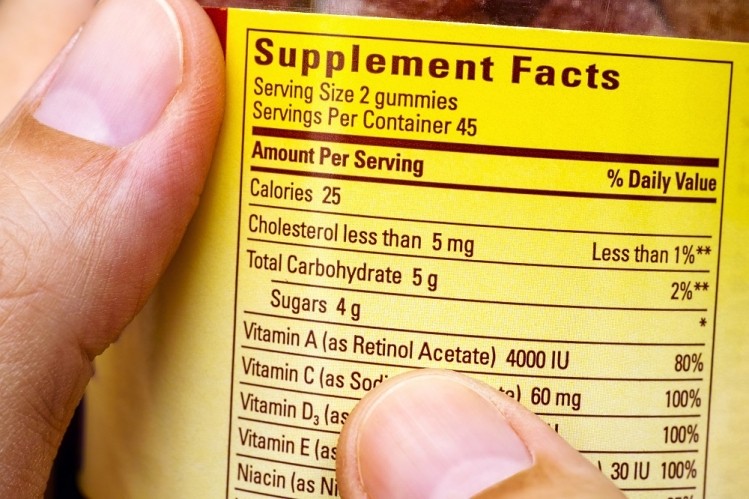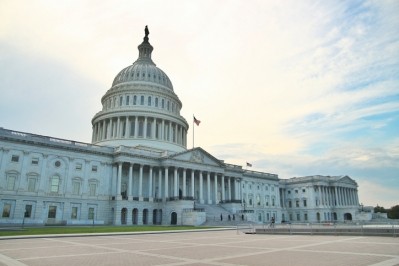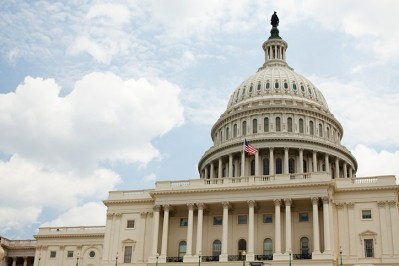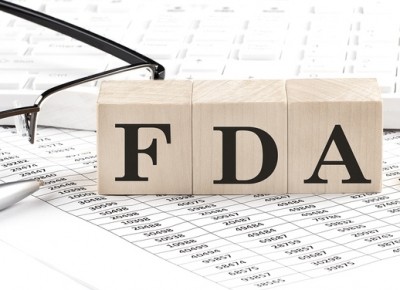Sen Burr strips out supplement provisions from new FDA user fee bill

In a press release, Sen. Burr cited concerns over the Senate’s ability to pass the Food and Drug Administration Safety and Landmark Advancements (FDASLA) Act.
Sen. Burr was a sponsor of the FDASLA, which reauthorizes the fees collected by FDA in the drug and medical device sectors and as such was expected to pass in one form or another.
However, after emerging from committee, the FDASLA contained language pertaining to dietary supplements that was seen as overly broad and did not mirror closely the ideas for mandatory product listing (MPL) that have been hashed out over the past year between lawmakers and the industry.
MPL
Mandatory Product Listing, or MPL, is an idea that has been floated for a number of years as part of the ‘DSHEA 2.0’ discussions. It is something that Cara Welch, PhD, FDA’s new director of the Office of Dietary Supplement Programs has advocated for in the past.
The idea is that dietary supplement manufacturers would be required to register a new product with FDA prior to putting it on the market. FDA officials have mentioned in interviews and public forums that having no firm grasp of what supplements are on the market hampers its ability to effectively regulate the industry.
Some industry stakeholders, such as the Consumer Healthcare Products Association (CHPA) and the Council for Responsible Nutrition (CRN), for their part, have gradually come around to the view that implementation of an MPL would show that the industry is serious about cooperating on instituting better regulations.
However, the language in the FDASLA pertaining to dietary supplements and the MPL could compromise trade secrets, demand information from companies beyond what’s on the label, and could, according to some stakeholders, give FDA new powers tantamount to pre-market approval.
Burr responds to “anti-innovation” policies in latest FDASLA
Commenting on his new bill, Sen. Burr cited concerns over the Senate’s ability to pass the FDASLA after, what he called, “anti-innovation policies were attached to the bill in Committee”.
“For months, the Senate HELP Committee worked diligently to craft a user fee package that not only addresses some of the most difficult issues facing the FDA, but also strengthens agency accountability for commitments made to innovators and patients,” said Sen. Burr. “FDA must be forward-looking if we are going to be ready for the next generation of scientific advancements and biomedical technologies to effectively respond to the next public health threat or devastating disease.
“Unfortunately, the user fee package reported out of Committee would, if enacted, undermine the very purpose of the user fee program. The policies added to this bill endanger the development of drugs for rare diseases, imperil intellectual property rights, threaten Americans’ access to breakthrough treatments and cures, and deter private sector innovation.
“Instead, the legislation I’ve introduced preserves the user fee agreements as they’ve already been negotiated – without harmful additions,” he added. “It keeps FDA’s critical operations running, protects existing scientific experts and ongoing hiring activities at the agency, and ensures the agency can continue to review new medical products, while encouraging private sector investment in the next generation of developments.
“It’s essential that Congress support an agreement that holds the FDA accountable to its performance commitments and brings life-saving, innovative products to Americans for years to come. As the authorizing deadline approaches, this clean reauthorization represents the clearest path forward.”
NPA: “Costly dietary supplement provisions have no place in this legislation”
Daniel Fabricant, PhD, NPA’s president and CEO, has been the most vocal opponent of an MPL, and welcomed Sen. Burr’s new bill.
“Senator Burr is absolutely right that extraneous, unnecessary and costly dietary supplement provisions have no place in this legislation, and should be applauded for this principled stance,” he said in a press release. “The dietary supplement provisions in the FDASLA would drive up the cost for consumers while preventing them from accessing certain products. As the nation faces record double-digit inflation Congress should not be making it more expensive for Americans to stay healthy.
“Additionally, Congress has never required the nutritional supplement industry to pay user fees, and supplements are not prescription drugs, generic drugs, medical devices, or biosimilars, so including dietary supplement provisions was not only controversial but unprecedented.
“The legislation introduced today by Senator Burr represents an opportunity for the dietary supplement industry to rally behind Senator Burr and help ensure FDA keeps operations running without layoffs. It’s past time for dietary supplement stakeholders to come to the table and lend our support for Senator Burr’s proposal.”
Looking for a different approach
Michael McGuffin, president of the American Herbal Products Association (AHPA), which has also opposed the introduction of an MPL, commented: “Ranking Member Burr’s vote on the FDASLA in the Senate HELP Committee, along with the introduction of his “clean” FDA user fee bill today, are signals that he is looking for a different approach; one that does not include controversial riders such as MPL.
“Added to this development was the joint statement today from House Energy and Commerce Committee Chairman Pallone and Ranking Member McMorris-Rodgers urging the Senate to rally behind the House’s cleaner, overwhelmingly bipartisan user fee package so that a measure can be enacted before August.
“What this means is there are now three Congressional FDA user fee reauthorization bills in play (House-passed bill, FDASLA, and the Burr bill) – and two of the three do not contain MPL. While it is hard to predict with any degree of certainty, these are seemingly positive developments for those who are advocating for a final measure that does not include MPL,” said McGuffin.
What next?
Burr’s new bill is seen by some as a negotiating tactic. For it to progress it would have to go via the HELP Committee, which is controlled by Sen. Patty Murray (D-WA), who already voted for the FDASLA (Burr voted against the version that emerged from the committee).
The deadline for passage of a bill reauthorizing FDA user fees would be August 1. NPA's Fabricant said it was likely that the final version would be negotiated by the conference committee, which is composed of Sens. Burr and Murray, Rep. Cathy McMorris Rodgers (WA-05), and Rep. Frank Pallone, Jr. (NJ-06). With Burr, McMorris Rodgers, and Pallone all seeming to favor a stripped-down version, it could then depend on Murray, and how high the dietary supplement provisions are on her priority list.
In an emailed statement to NutraIngredients-USA, Julia Gustafson, CRN’s Vice President, Government Relations, said: “Negotiations for a legislative package of this size and complexity are multi-faceted, constantly evolving, and often hit rough patches. CRN is pleased to be involved in these negotiations and respectfully chooses not to predict how these issues will be resolved.”
A spokesperson for CHPA declined to comment on the Burr bill but directed us to its recent press release that states CHPA favors an appropriate listing system that increases visibility into the marketplace, but that also provides assurances for consumers
To read the legislative text of Sen. Burr’s Food and Drug Administration Simple Reauthorization Act, click HERE.

















